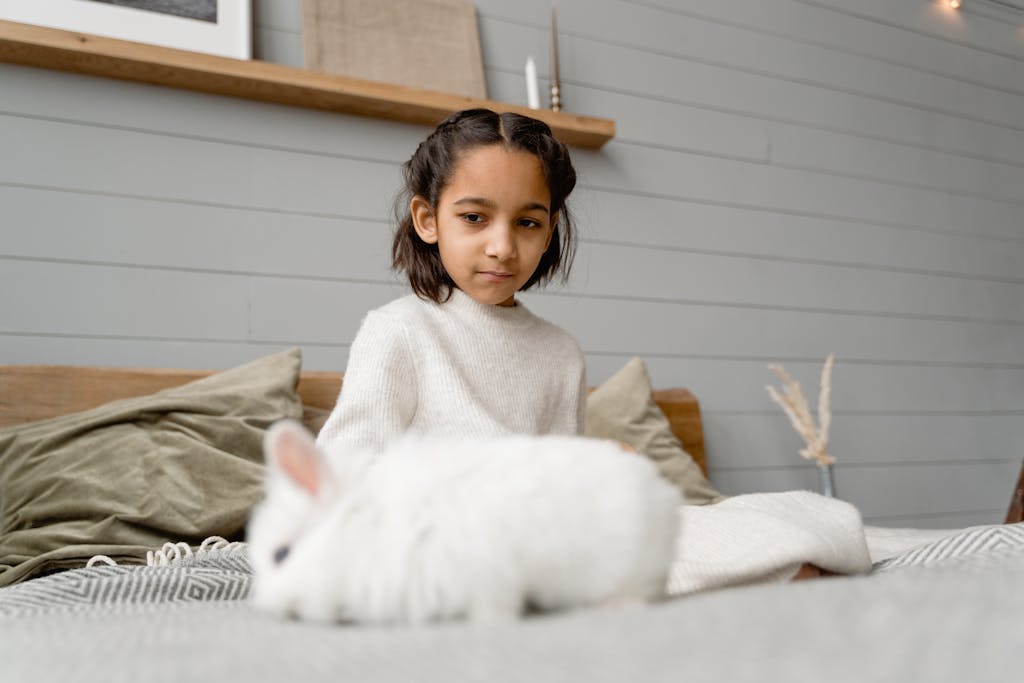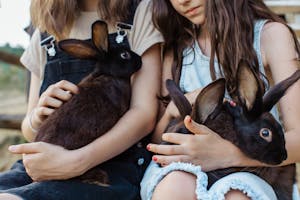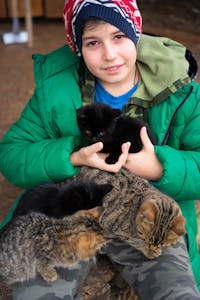Introduction: Why Pets Are the Best Teachers for Kids
There’s something incredibly pure about the bond between children and animals. While pets offer companionship and joy, they also teach children some of life’s most important lessons—empathy, responsibility, patience, and compassion. In a world filled with distractions, technology, and stress, the simple relationship between a child and their pet offers grounding, love, and countless moments of happiness.
For parents considering bringing a pet into their family, the benefits extend far beyond cuddles. A pet can shape the emotional, mental, and even physical development of a child in ways few other experiences can.
Life Lessons Kids Learn from Pets
Responsibility Through Daily Care
Feeding, walking, grooming, and cleaning up after a pet teaches children accountability. These daily tasks aren’t just chores—they become opportunities for kids to understand commitment. Learning that another living creature relies on them helps kids grasp responsibility in a very real, tangible way.
The Power of Empathy and Compassion
Children who grow up around animals naturally develop empathy. They learn to read non-verbal cues—understanding when their pet is scared, tired, hungry, or playful. This awareness extends beyond animals, helping kids relate better to people, too. Compassion becomes part of their emotional vocabulary.
Patience and Respect for Boundaries
Not every animal wants to play on command. Teaching children to respect an animal’s space and mood helps them understand patience, consent, and the value of non-verbal communication—skills that will serve them well in friendships and relationships throughout life.
Emotional and Social Benefits of Pets for Kids
Building Confidence and Emotional Strength
Having a pet creates a safe space where children can express themselves freely, without fear of judgment. Pets love unconditionally, offering comfort during tough times—be it a bad day at school or a fight with a friend. This kind of steady emotional support builds confidence and resilience.
Reducing Anxiety and Stress
Studies have shown that children with pets tend to experience lower stress levels. Petting a dog or cat releases calming chemicals in the brain, reducing anxiety and helping children feel more secure. For children with special needs or social anxieties, pets often serve as gentle bridges to the world.
Encouraging Communication and Responsibility
Talking to pets—whether it’s reading stories aloud to them or sharing secrets—helps young children develop communication skills. These moments also help strengthen the child’s sense of responsibility and pride in caring for another living being.
Physical Benefits: Healthier, More Active Lifestyles
Encouraging Outdoor Play
Dogs, especially, inspire active lifestyles. Walks, fetch games, and backyard playtime encourage kids to step away from screens and enjoy fresh air. Physical activity becomes fun when it’s shared with a beloved pet.
Building Stronger Immune Systems
Research suggests that children who grow up with animals may develop stronger immune systems, thanks to early exposure to allergens and microbes. These kids often experience fewer allergies and illnesses later in life.
Stories That Inspire: Real-Life Bonds Between Kids and Pets
Emma and Daisy the Rescue Dog
Emma was a shy, anxious child who struggled to make friends. Everything changed when her parents adopted Daisy, a gentle rescue dog. Through caring for Daisy, Emma found confidence, developed routines, and started to open up emotionally. Daisy became her best friend—and her emotional support through tough days at school.
Max and Oliver the Cat
Max, a child with autism, found it difficult to express emotions until Oliver, a stray cat, entered his life. With Oliver’s patient, calm presence, Max learned to communicate better and discovered the joys of companionship through daily cuddles, playtime, and quiet moments together.
How to Foster a Healthy Relationship Between Kids and Pets
Teaching Respect from Day One
Children should be taught to approach animals gently and understand signs of discomfort. Setting boundaries early creates trust between pets and kids and prevents accidental harm.
Involving Kids in Pet Care
Assign age-appropriate tasks—feeding, brushing, cleaning bowls—that help kids feel involved and responsible. These routines also teach consistency and reliability.
Celebrating the Bond
Encourage your child to celebrate milestones with their pet—birthdays, adoption anniversaries, or small victories like learning a new trick. These moments create cherished memories and deepen the bond.
Conclusion: Pets Shape Kinder, Happier Kids for Life
The relationship between children and pets is built on trust, loyalty, and love. It helps kids grow into empathetic, responsible, and emotionally strong individuals. Pets offer more than just companionship—they become silent teachers, loyal protectors, and lifelong friends.
As your child grows alongside their furry (or feathered, or scaly) friend, they’ll carry forward lessons of kindness, patience, and compassion—qualities that will serve them well for a lifetime.
Key Takeaways for Parents
- Pets help children develop responsibility, empathy, and communication skills.
- Animal companions offer emotional support that strengthens confidence and reduces anxiety.
- Growing up with pets leads to more active, healthier lifestyles for children.
- A child-pet bond creates lifelong memories and shapes character in positive, lasting ways.









